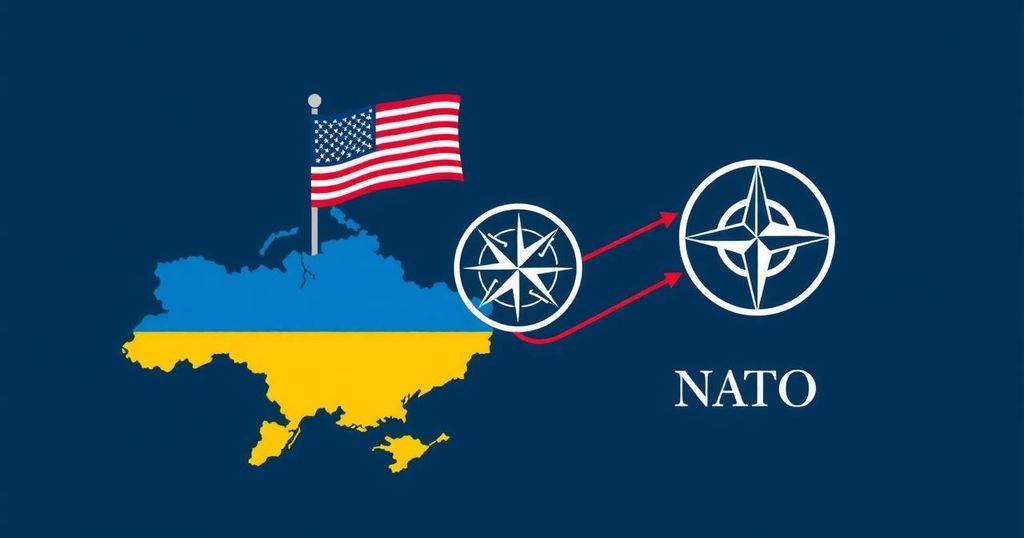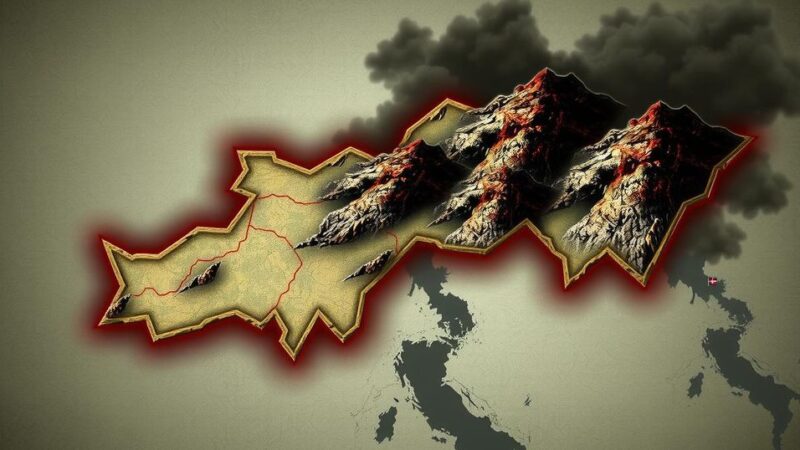The article discusses the looming U.S. presidential election and its potential impact on NATO’s support for Ukraine. Concerns arise that U.S. aid may decrease if Donald Trump wins, prompting NATO to prepare for a possible reduction in U.S. engagement. Secretary of Defense Lloyd Austin reassures allies of bipartisan support while European nations work to increase their defense contributions amidst persistent threats from Russia, which continues to receive significant military aid from North Korea and Iran.
As the United States prepares for an upcoming presidential election, the implications for NATO discussions and support for Ukraine have become increasingly pronounced. This week, NATO defense chiefs convened amidst concerns that U.S. aid to Ukraine may wane if former President Donald Trump secures the presidency once again. Secretary of Defense Lloyd Austin addressed these concerns during a closed-door meeting, acknowledging the uncertainty while emphasizing that bipartisan support for Ukraine remains significant within the U.S. Congress. NATO officials are strategizing for a scenario where U.S. involvement might decrease, with one senior official stating, “We can’t expect that the US will continue to take on an outsized burden,” which highlights the necessity for Europe to enhance its support. This sentiment is further echoed by concerns regarding Trump’s previous comments on Ukraine’s war, which have left many uncertain about future U.S. engagement. In light of Russia’s continued military gains in Ukraine, NATO is accelerating its efforts to centralize support, both in training Ukrainian troops and coordinating military assistance, to ease reliance on U.S. funding if required. The establishment of the NATO Security Assistance and Training initiative is still in progress, which aims to ensure a smooth transition of responsibility should U.S. support diminish. Concurrently, European nations are ramping up their production capabilities in response to the ongoing threats from Russia. Challenges also loom over a proposed EU and G7 plan for long-term funding for Ukraine, currently hindered by Hungary’s opposition to adjustments in EU sanctions that would facilitate financial support. Meanwhile, the Biden administration is taking measures to maximize aid to Ukraine, focusing on sustaining and enhancing defense capabilities domestically as well as in Ukraine. The geopolitical landscape, however, is complex. Non-Western countries like North Korea, Iran, and China are bolstering Russia’s military efforts, while NATO struggles to match Russia’s munitions production rates, indicating a potential imbalance in military preparedness for the ongoing conflict. Despite these hurdles, Secretary Austin has reassured allies of America’s commitment to producing necessary weapons and ensuring continued support for Ukraine’s defense needs. NATO’s Secretary General remarked that supporting Ukraine is not merely a charitable act but a critical investment in global security.
The article sheds light on the intricate dynamics of U.S. foreign policy and NATO’s collective defense strategy as they relate to the ongoing conflict in Ukraine. The possibility of a Trump presidency raises questions about the future of American support for Ukraine, given Trump’s ambiguous stance on Ukraine’s defensive needs during past statements. As tensions escalate and Russia receives military aid from nations such as North Korea and Iran, NATO’s reliance on the U.S. becomes a central concern, prompting discussions about European nations assuming greater responsibility. The urgency of aiding Ukraine, bolstered by ongoing military actions, underscores the necessity for coordinated international support to counterbalance Russia’s high munitions production and military capabilities.
As the U.S. presidential election approaches, NATO faces significant challenges in ensuring sustained support for Ukraine against external aggression. The specter of diminished U.S. aid under a potential Trump administration necessitates a strategic shift towards enhanced European contributions to defense efforts. While the geopolitical landscape is complicated by external support to Russia, NATO’s resolve to maintain unity and bolster Ukraine’s capabilities remains paramount for the alliance’s long-term security and stability in the region.
Original Source: www.cnn.com






